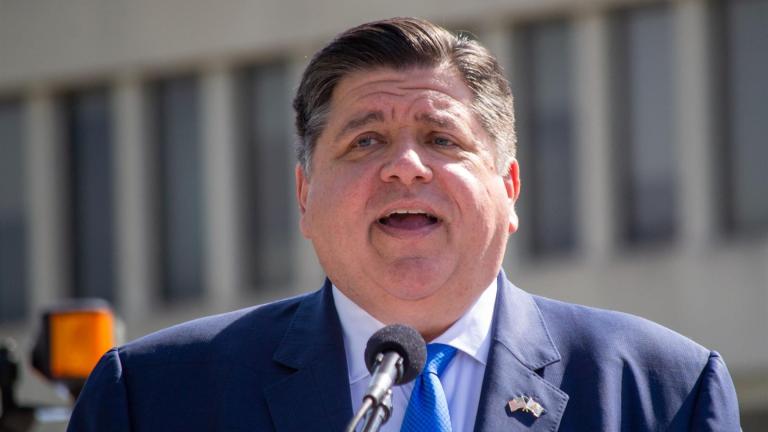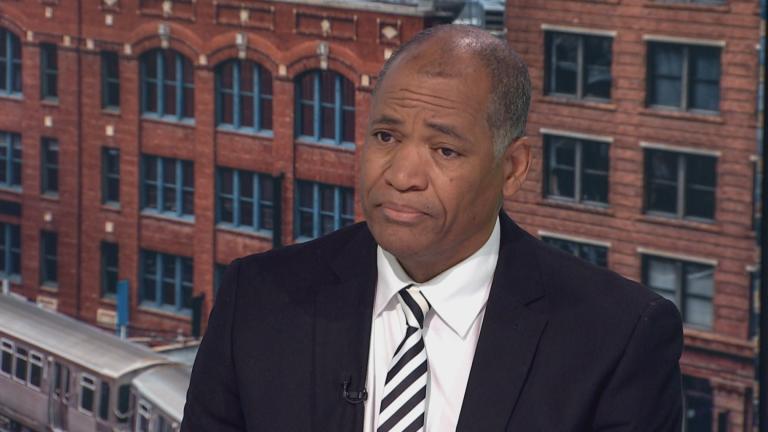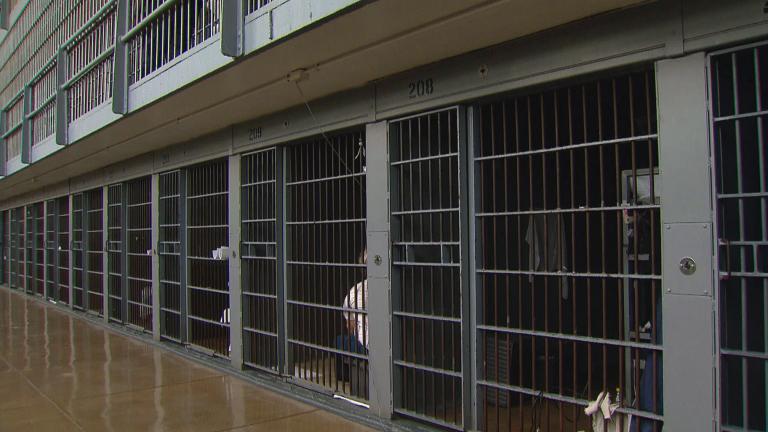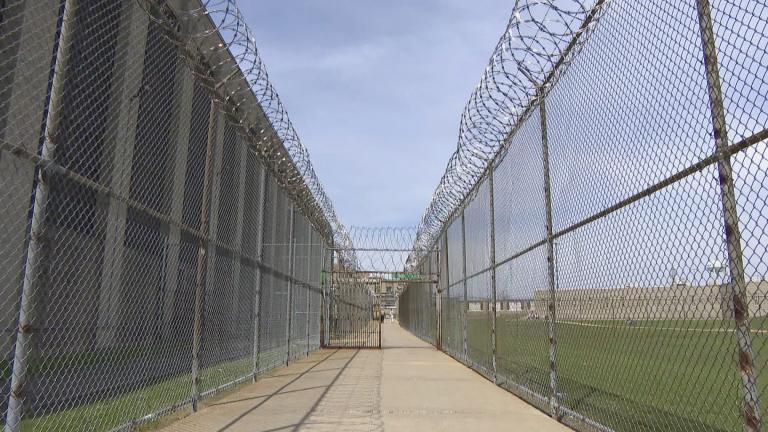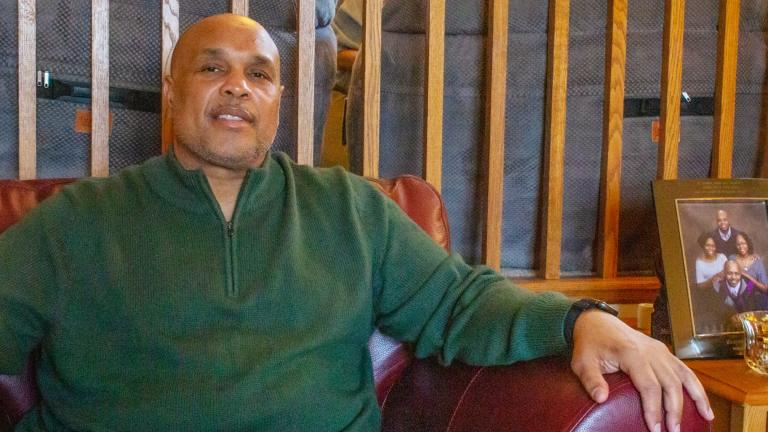In a cramped conference room at Dixon Correctional Center, with his oxygen machine whirring next to him, 72-year old Richard Dyches shared his fears for the future.
“My hope is waning,” he said. “And, I personally believe that all any of us has is hope. And I believe that when you lose hope you die and I am going to—I will die here.”
Dyches is 27 years into a life sentence for murder and he fears the end of his life may be coming soon.
“They gave me the results to read. And as soon as I got to pulmonary interstitial fibrosis, I stopped because I knew what that was,” Dyches said. “I knew that it was a death sentence because my mother died with this disease. My brother died with this disease. So I know what it is and I know what they go through. It is a devastating disease.”
In summer of 2022, he was diagnosed with idiopathic pulmonary fibrosis — a rare, terminal lung disease.
For the last two years, Illinois has had a law that allows people who are in prison and are dying of a terminal illness or are physically disabled the opportunity to petition for compassionate release. It’s called the Joe Coleman Medical Release Act.
Under the law, people in prison can petition the Illinois Prisoner Review Board for early release if they are terminally ill and likely to die within the next eighteen months; have become disabled since being incarcerated; or are likely to become disabled within the next six months.
But a recent report shows far fewer prisoners than expected are getting out. In fact, the Illinois Prisoner Review Board has denied nearly two-thirds of all medical release requests, according to the report from WBEZ and Injustice Watch.
During a WTTW News visit to the facility two hours west of Chicago, Dyches shared letters from both his doctor at UI Health and the Dixon Correctional Center doctor attesting to his terminal illness. Despite that documentation, the board still denied him.
The letter from the Prisoner Review Board gave no reason for the 3-0 denial, but said Dyches can reapply in six months — with updated medical diagnosis, prognosis and approximate life expectancy.
“When you take someone like Rich who was denied in July, and then if he has to wait six months to reapply, that’s January. Then, it takes 90 days to go thru process, that’s April,” explained Dyches’ attorney Bill Nissen. “He’s got only two months left to live under prediction that the doctors made.”
Nissen argues the board is overstepping with that six-month waiting period, since it is not in the statute itself.
In a statement, the Illinois Prisoner Review Board says: “Similar to the one-year wait in the clemency process, the PRB imposes a 6-month waiting period to ensure board members and staff have the time and resources to give each person the due diligence they deserve. These waiting periods prevent the Board from being inundated by requests. The policy includes the ability for individuals to petition the Board Chair to waive the 6-month wait requirement if there are clear and convincing changes in circumstances.”
Nissen says the board’s low rate of granting medical releases defeats the law’s purpose.
“It does nobody any good at that point in life,” Nissen said. “The state has to pay a lot of money to take care of people. The state lacks resources to take care of people properly. And there is no, in my view, valid penal purpose served by requiring a sick person who has a life sentence to serve last days in prison infirmary as opposed to nursing home or other facility.”
Applicants also have to prove they have a plan for themselves upon release.
Dyches’ pen-pal-turned-power-of-attorney helped him secure a spot at the Oak Park Arms in Oak Park.
“His particular diagnosis strikes very close to my heart. I just had a sister who died of that this last summer,” said Barbara Moline. “So, I know that his last year is going to be pretty horrible, extra horrible if he’s in prison.”
And Dyches would have the resources to pay the cost of care, since he’s earned a small income on the books he’s written and is eligible for Social Security and Medicare when he’s released from prison.
But time is of the essence.
The month, after his first petition was denied, medical tests at UI Health reveal his lung disease is getting worse.
“The doctor told me then that she’s not sure that I will even live six more months. It is aggressively attacking my body,” Dyches said.
Another six months could mean Dyches will spend very few, if any, of his last days outside these walls.
“I want to spend what time I have left with my children. I have identical twin granddaughters that I’ve never seen,” he says tearfully. “I want to see them. I want to see my children.”
Video: Lisa Daniels, executive director of the Darren B. Easterling Center for Restorative Practices, and Tom Devore, an attorney and former Republican candidate for Illinois attorney general, join “Chicago Tonight” to discuss the Joe Coleman Medical Release Act. (Produced by Andrea Guthmann)
Follow Brandis Friedman on Twitter @BrandisFriedman

